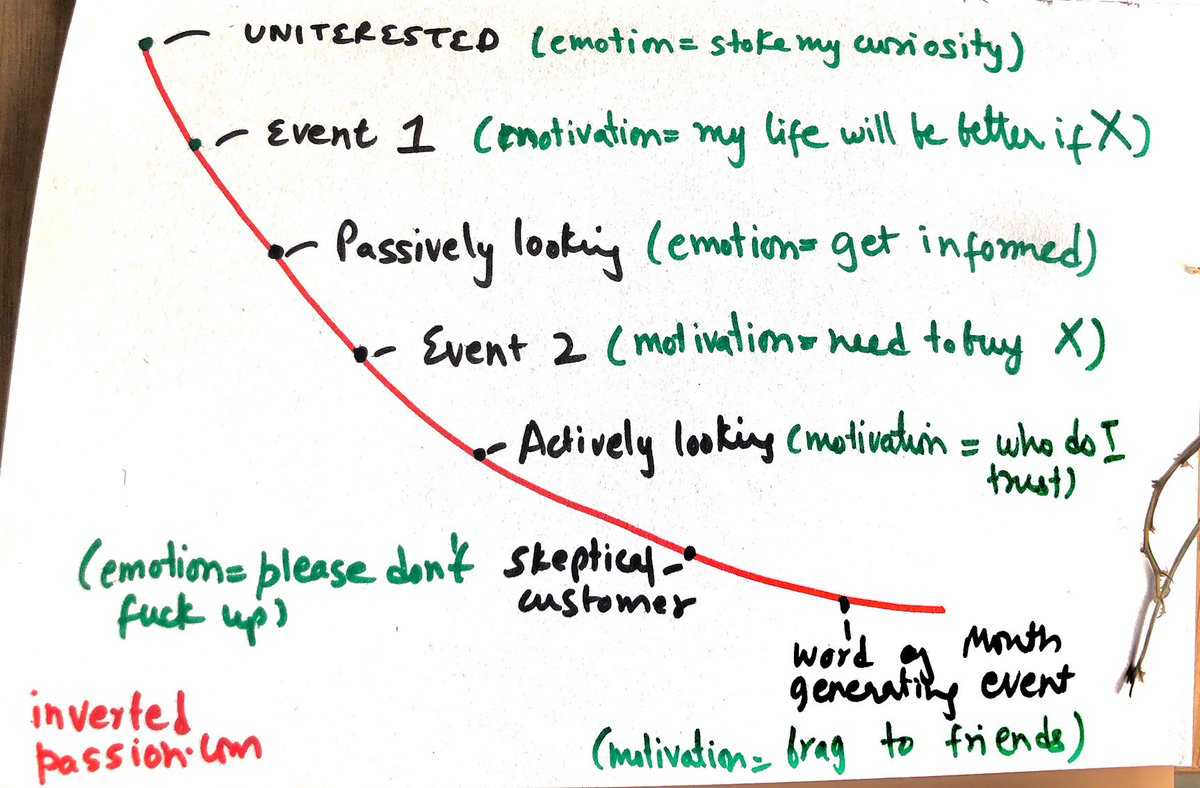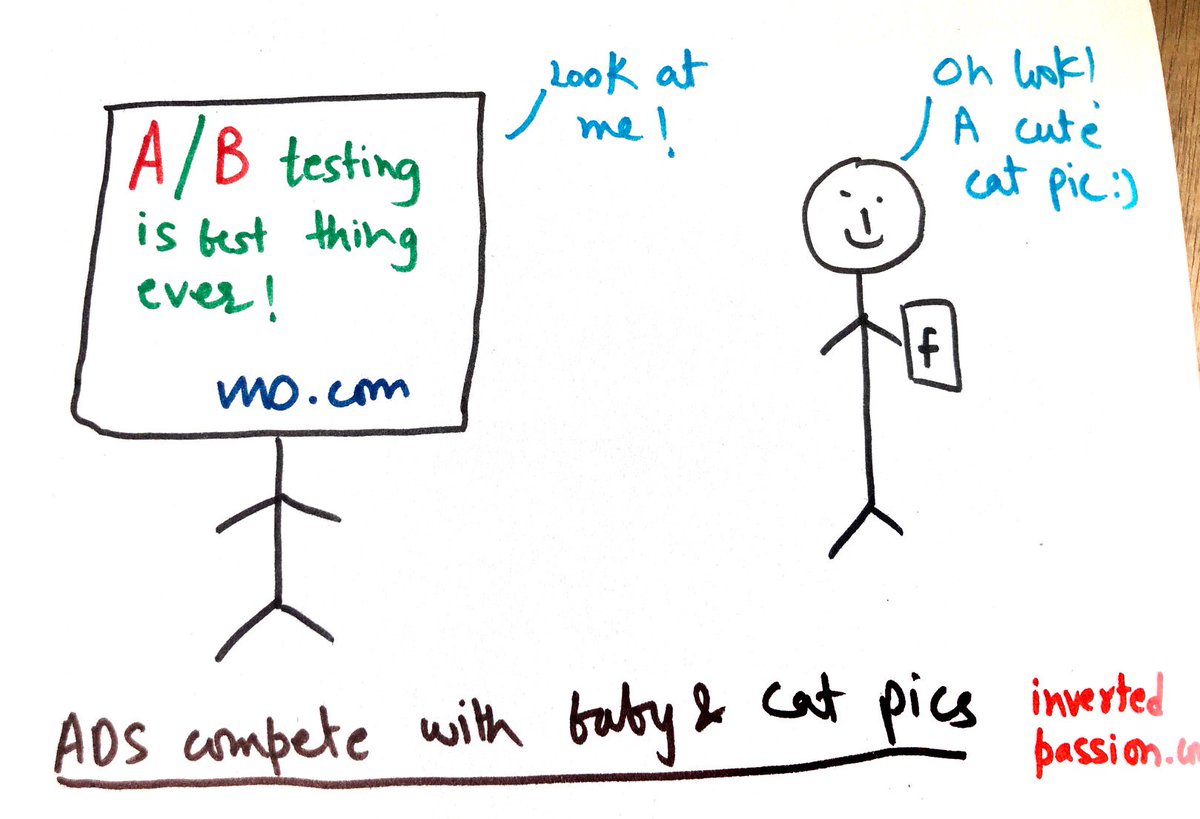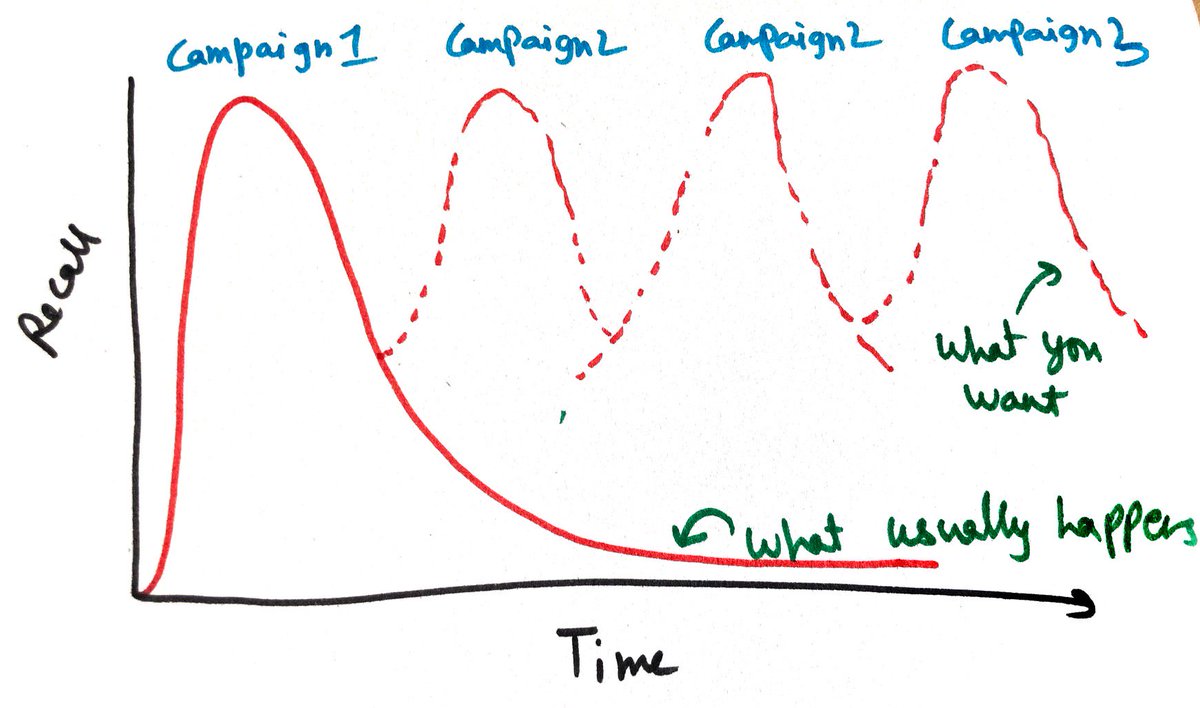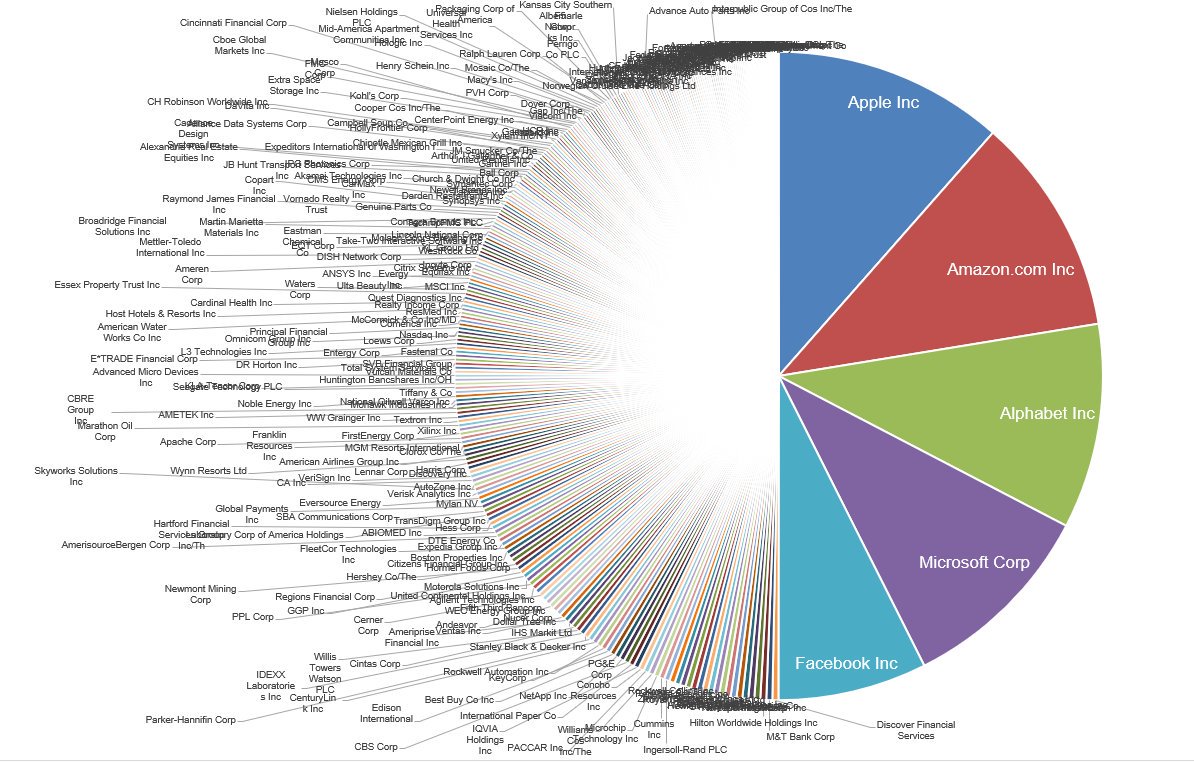For products past market-product fit, marketing (promotion) becomes a barrier to growth. Why do so many founders say they struggle with marketing?
What if I told you there's a framework to approach marketing? Bookmark this thread because that's what it's about.
All these definitions are wrong because of the same reason: they serve company’s goals, not customers’.
I’ve written about how it affects entrepreneurs when they
- design products invertedpassion.com/why-people-jum…
- get excited about new technology invertedpassion.com/nobody-likes-u…
- seek new startup ideas invertedpassion.com/to-get-good-st…
(Whether they’re effective or not depends on creativity. Frameworks are inert. Their application is everything)
People are busy with their lives. They don’t care that you’re passionate about X. They’ll start caring if your passion makes them passionate about their goals.
(X=your idea, product, ad, blog post, video, etc.)
To answer that, first, answer another question: How many ads do you remember seeing yesterday?
Good.
The world is different now. Marketers need to understand that their main competition is not other ads, but Twitter, Facebook, Netflix and Youtube.
Lo and behold, let me present you the MER framework.
M=Motivations (of consumers), E=Emotions (you need to deliver), R=(Need for) Repetition.
Consumers at different stages have different motivations / goals.
Most consumers in target market are either uninterested at the time they see the ad or only passively looking. The same ad cannot talk to consumers at different stages of purchase journey
Common error: you informing them when they want to be intrigued and you selling them features when they already know about features (but not convinced).
You need to deliver messages that answer their motivations

The second step to being a good marketer is to admit that consumers are busily happy with their lives and your marketing messages compete for the same emotions that they can get from elsewhere.
Intellect responds to emotions (not vice versa).
Challenge of crafting good marketing is to identify and serve them the right emotion at the right time and do it much better than anyone else

The function of most advertising is to prevent sale loss (and not sales)
The third step to being a good marketer is that memories fade, life gets in and consumers need to be reminded again and again how the goals they’re motivated to pursue and emotions they seek will be delivered to them by you.
But you want to ensure that you have a high recall when an event in your customer’s life triggers them into first passive and then active looking mode

The challenge of the marketer then is to really live the consumer’s life. (And that’s much much harder than it sounds)
The multitude of marketing channels required to create awareness and recall is why marketing easily takes up >50% of expenses for a growing startup tomtunguz.com/saas-marketing…
What went well:
- our case studies grabbed attention
- we were able to get high search ranking (top 5 results) on Google
- what helps in closing: social proof of 5000+ customers, trust building inside sales process
- we measured ROI for conferences from leads (and not from a brand building)
- We didn’t scale our Adwords spend
- We created feature-laden, informative ads for display ads
- We underinvested in getting press.
More details on MER framework: invertedpassion.com/mer-framework-…
RT for your marketing friends on twitter :)






